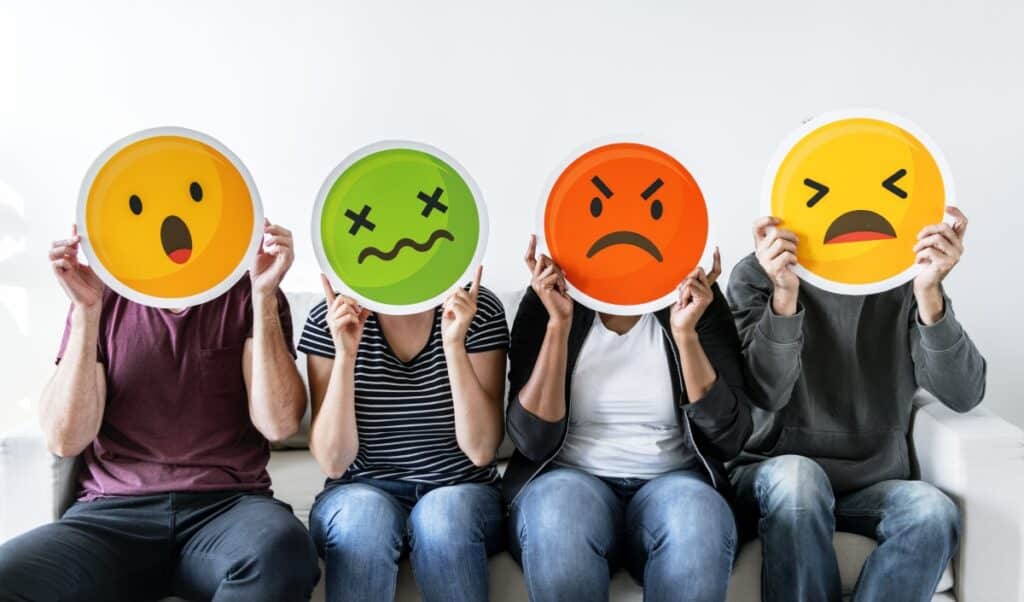Ahead of World Smile Day on October 6, Alix Norman discovers if Cyprus is beaming or frowning – and does it really matter?
Cyprus is NOT the most smiley nation on earth. It’s not even in the top 50, according to The Smile Survey. In fact, it falls well below our neighbours Lebanon (ranked 25), Egypt (24) and Turkey (39).
As World Smile Day approaches, we find Cyprus ranked as the world’s 55th most smiley nation – just making it into to the top half of the 124 countries assessed.
Latin American countries dominate the survey: Brazil came 1st, followed by Nicaragua and Columbia; at 8, the Philippines was the only non-Latin American country to make the Top 10!
Ranked 62, the UK is on the half-way mark, just slightly higher than Greece at 69 and well above most of the Middle Eastern nations, which include the UAE at 115, Bahrain at 117, and Saudi Arabia at 119.
The study, which analysed more than 150 million Instagram posts in 6,000 worldwide cities, was based on a ‘smile score’. This determined how often residents were smiling in Instagram photos, bestowing higher scores for bigger smiles.
Already, you can see the potential flaws here – after all, aren’t we programmed to ‘smile for the camera’? And anyway, who’s to say the smiles were real? But the study tried to account for these factors, scoring on smiles’ shape, size, and genuineness (a true smile reaches the eyes, as we all learnt during those many months of mask-wearing!).
Granted, the list was compiled in 2014, so rankings may have changed since then: a decade ago, Ukraine was ranked 36 – given recent circumstances, that may sadly no longer be the case. But we don’t have to be happy to smile, it transpires. The reasons we might crack a grin are as varied and mysterious as the Mona Lisa’s smile…
Smiling is a complex phenomenon that involves multiple brain regions, nerves, muscles, and chemicals. Worldwide, the average person smiles roughly 20 times a day; children more than adults; women more than men; and people from warmer climates more than people from colder climates (hello first-placed Brazil!).
The act of smiling is believed to reduce stress, lower blood pressure, boost your immune system, and even predict your future – one study found that people who smiled more in their childhood photos were more likely to have a happy marriage later in life!

Babies smile from birth to communicate with their caregivers. As we grow older, we learn that a smile can aid social bonding, attracting others to our openness and confidence. It’s a sign of affection, of joy, of gratitude that can signify our good mood. Or, sometimes, hide our true intentions…
Employees who deliver ‘service with a smile’ are often perceived as more helpful and willing to assist, which leads to increased customer satisfaction (and bigger profits!). Politicians grin from scandal to scandal, knowing that humans are biologically inclined to find smiles more trustworthy. And more than one study has proved that we’re more generous with our cash when approached by someone with a smile.
Still, there’s a huge cultural component to the simple act of smiling. Take Russia, for example…
During the Cold War, Soviet media regularly reported on the American propensity for smiling, suggesting it was a device used to entice trusting Soviet politicians to let down their guard! Today, while residents of the US see smiling as a symbol of respect and a means of improving relationships, various studies propose their eastern counterparts reserve their smiles for genuine moments of joy with close friends and family. In Russia, unlike in America, smiles may be rare. But they’re believed to indicate genuine connection.
What smiles don’t always indicate, however, is happiness. Japan, for instance, ranks 54 on the World Happiness Index, and is described as a nation whose people “generally report a high level of life satisfaction and happiness.” It’s also home to the Okinawa Blue Zones (in which people live far longer than elsewhere), and consistently ranks in the top three nations for life expectancy; happiness is frequently cited as one of the main factors in longevity. And yet, when it comes to The Smile Survey, Japan places 124. Dead last.
While smiles clearly aren’t an indication of happiness, the ‘smiley face’ is – or was originally intended to be. A universal symbol for joy and positivity, it’s one of the most widely used and instantly recognisable images in the world – translated for the digital era into the smiley emoji.
This simple yellow circle (yellow being the colour most closely associated with happiness) has been around since 1963, when American artist Harvey Ball was commissioned by an insurance company to create a design that would boost employee morale. Whether or not the employees then suddenly experienced a rush of joy in their underwriting is anyone’s guess. But the symbol itself took off in such a big way that its creator, concerned by the over-commercialisation of his efforts, then came up with the notion of World Smile Day…
The idea was that every one of us should devote one day a year to smiles, regardless of politics, beliefs or background. Happiness, Harvey believed, COULD be caused by smiling. And so, in 1999, the planet got its very first World Smile Day.
Since then, Smile Day has taken place annually on the first Friday in October, with global events designed to spread smiles (and, it’s hoped, kindness). As part of its efforts, various groups have visited nursing homes, set up meal services, hosted concerts, and even created the ‘Largest Human Smiley’, earning the 8,018 Filipino participants a Guinness Record!
In Cyprus, the Samaritans celebrated last year with posts suggesting that a smile could change, if not the world, then someone’s day. One of the island’s internet providers attempted to capitalise on World Smile Day with a campaign suggesting that faster download speeds would make you smile. And more than a few local Instagrammers jumped on the bandwagon, tagging beach-body pics with #worldsmileday. Which probably brought a grin to a few faces, even if no researcher was around to document it!







Click here to change your cookie preferences